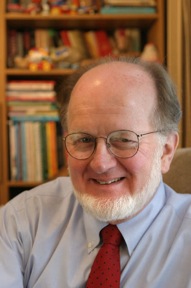
-- By Thomas E. Brown, Ph.D --
Recently there has been considerable media coverage about Attention Deficit Hyperactivity Disorder. Much of the coverage is alarmist and based upon outdated and mistaken assumptions about the nature of this disorder. Recent research in psychology, psychiatry and neuroscience has dramatically changed scientific understanding of what ADHD actually is and how it is related to development and functioning of the brain. Here are a few of the important changes that have emerged over recent years in scientific understanding of ADHD:
- ADHD is not primarily a cluster of behavior problems accompanied by difficulty in listening to others. It is essentially a developmental impairment of the management system of the brain, its executive functions.
- ADHD is a complex disorder which impacts the individual’s ability to organize and activate for work tasks; to focus attention and shift it when needed; to manage alertness and emotions; to sustain effort for work tasks; and to utilize working memory.
- ADHD often looks like a lack of willpower because all those with ADHD are able to focus quite well for a few tasks that really interest them or when they feel they have a gun to their head, yet they have chronic difficulty in focusing on many other tasks that they recognize as important. Yet ADHD is not a problem of willpower.
- There are scientifically demonstrated differences in the development and functioning of the brain in persons with ADHD when compared with others of comparable age — differences in the rate of maturation of certain key areas of brain, in the wiring that connects various sections of brain and in the chemical dynamics of communication between countless networks of neurons that comprise the brain’s management system.
- Many who suffer from ADHD, especially those who are well-behaved and quite bright, often are not recognized as having this disorder until they encounter the challenges of secondary school or university studies where parents and teachers do not provide as much scaffolding.
- Medication treatments for ADHD do not cure the disorder as an antibiotic may cure an infection. Yet, if medication dose and timing is carefully fine-tuned to the sensitivities of each particular patient, about 80 percent experience significant measurable improvements in their functioning during the portion of day when the medication is active. Side effects are usually minimal if the medication is taken as prescribed by a person who is basically in good health. #
Dr. Thomas E. Brown is Associate Director at the Yale Clinic for Attention & Related Disorders in the Department of Psychiatry at Yale University School of Medicine. His recently-released book, A New Understanding of ADHD in Children and Adults: Executive Function Impairments (Routledge) describes this new paradigm for understanding ADHD and the scientific research that supports it. For more information visit www.DrThomasEBrown.com.


Leave a comment